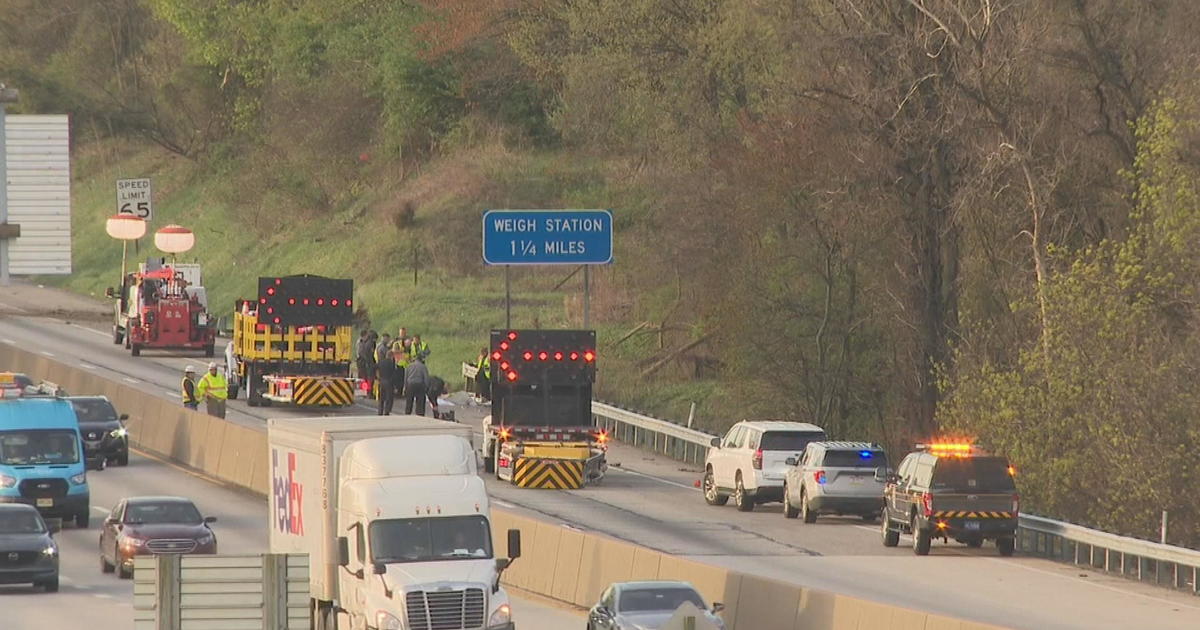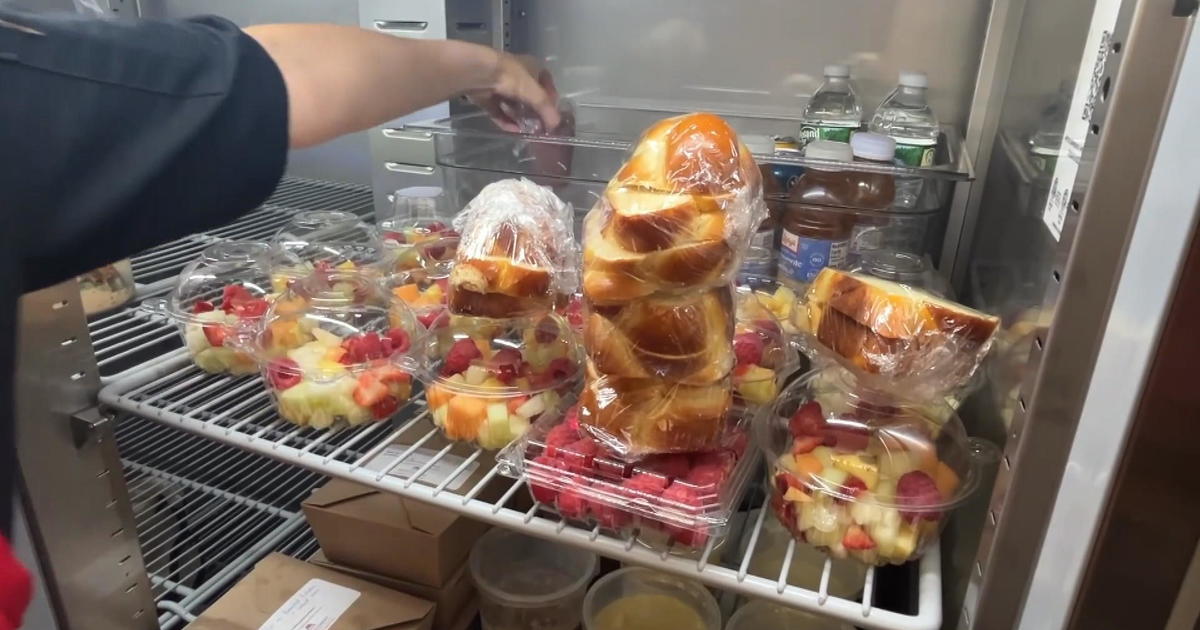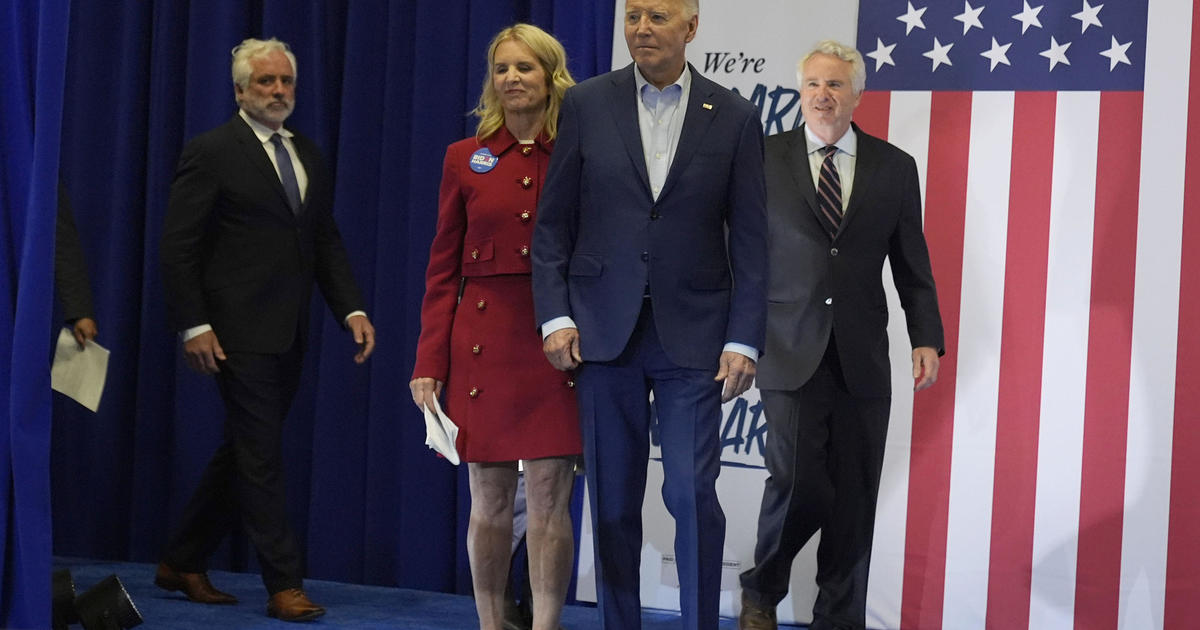Corbett Still Struggling To Win Over Democrats
HARRISBURG, Pa. (AP) — Governor Tom Corbett was extolling the virtues of bipartisanship, saying it is lacking in Washington, D.C., and that it's what Americans want to see more of. Then he made a rare acknowledgement: He wanted to do a better job of winning the votes of Democrats for his agenda and would like to have a better relationship with them.
This was late last year, after the Nov. 6 election that swept President Barack Obama back for a second term, installed Democrats into Pennsylvania's three other statewide executive-branch elected offices and narrowed the state Senate's once-gaping Republican majority.
Six months later, Corbett still emphasizes bipartisan votes, despite pushing an agenda — and holding closed-door meetings — that still largely excludes Democrats and relies on the Legislature's Republican majorities. So it's not surprising that Democrats still call Corbett ideologically extreme and accuse him of being rigidly partisan.
"We don't agree with most of his agenda," said House Minority Leader Frank Dermody, D-Allegheny. "We think it's bad for Pennsylvania."
Dermody acknowledges that he had had more frequent contact with Corbett's chief of staff, Steve Aichele, than he had had with Corbett's prior chief of staff, Bill Ward.
But much of Corbett's major legislative agenda this spring — passing an on-time budget that cut business taxes, privatizing the state-controlled wine and liquor store system and overhauling the state's biggest public employee pension systems — rubbed Democrats the wrong way.
It was also notable for a top priority of Democrats' that it did not include: An agreement to expand Medicaid eligibility to hundreds of thousands of Pennsylvania adults under the 2010 federal health care law.
Corbett's budget passed, but with support from just six of 20 Senate Democrats and not one single House Democrat out of 92. Efforts on pension and liquor legislation eventually bogged down after every single Democrat opposed them and Republican majority leaders could not secure enough votes from their own ranks.
A bill compelling Corbett to seek an expansion of Medicaid by Oct. 1 passed the Senate with a solidly bipartisan vote, 40-10. But the provision was killed in the House after Corbett privately made it clear to Republican leaders that he would veto it.
Then there's the transportation funding legislation, which Corbett made a top priority after two years of pressure from lawmakers. A bill passed the Senate with a heavily bipartisan majority — 45-5 — and went to the House.
Corbett made no commitment to sign the measure before it stumbled in the House in the final days of June. There, Republican leaders faced opposition from anti-tax conservatives in their own caucus and alienated Democrats by scaling back the amount of money that would be provided to mass transit agencies. The proposal collapsed and lawmakers departed Harrisburg until September.
So instead of bipartisan harmony, Corbett has attacked Democrats. He stressed that the transportation bill came out of the Senate with a bipartisan vote and acknowledged that House Republicans lacked enough support to increase transportation dollars to pass their own bill.
"We always knew we were going to have to have Democratic support," he said during July 3 during his regular appearance on the Dom Giordano Program on WPHT-AM in Philadelphia.
He complimented the four Democrats who had supported the House GOP transportation bill in a committee vote, including the committee's ranking Democrat, Philadelphia Rep. Michael McGeehan.
"Now when it's on the floor, the Democrats are going 'No.' Democrat leadership told their membership, 'No, we're not going to vote for this,'" Corbett said.
McGeehan said he voted for the measure to ensure that it got out of committee, but did so with the understanding that it would need to undergo more changes so that it more closely resembled the Senate's transportation bill to attract Democrats' support.
It didn't change, and Senate Majority Leader Dominic Pileggi, R-Delaware, joined Democrats in rejecting it as inadequate.
Perhaps Corbett should have considered himself forewarned.
In a mid-June meeting between Dermody and Corbett on the transportation bill, Dermody warned Corbett that Democrats would be resistant to compromise after feeling frozen out by his administration for two-and-a-half years while he rammed through a partisan agenda with the help of Republican majorities.
"There's a tremendous lack of trust," Dermody said. "It's not there."
(© Copyright 2013 The Associated Press. All Rights Reserved. This material may not be published, broadcast, rewritten or redistributed.)



